Understanding Anxiety Disorder
Learn about anxiety disorder
Anxiety is a normal – often helpful – response to stresses in the environment. Anxiety can help an individual work harder under pressure, lead them away from dangerous situations, and help individuals think more clearly. However, when anxiety becomes a way of life, it no longer provides any benefit for the individual. In fact, it can hinder an individual’s daily life. People who struggle with anxiety disorders may become so riddled with anxiety that they are unable to function at work, in school, in interpersonal relationships, or in society. When anxiety turns from a helpful, if not annoying response, to an overwhelming burden, it can be considered an anxiety disorder.
Anxiety disorders are a relatively common mental illnesses that involve extremes in worrying and stress that are not beneficial to leading a normal life. There are a number of types of anxiety disorders, including panic disorder, obsessive-compulsive disorder, post-traumatic stress disorder, generalized anxiety disorder, social anxiety disorder, and phobias.
Generalized anxiety disorder (GAD) involves extreme tension and worry even without provocation and cause significant impairment in an individual’s ability to function in daily life.
Phobias are an intense, unrealistic or exaggerated fear of a specific situation, activity, or object, such as a fear of heights or snakes that presents little-to-no danger. The level of fear associated with phobias is utterly inappropriate to the situation and may cause an individual to avoid everyday situations. Avoidance, unfortunately, only strengthens the phobia.
Social anxiety disorder (social phobia) involves an overwhelming worry and self-consciousness about social situations. Social phobia may involve a fear of behaving in a manner that can lead to embarrassment and ridicule, or being judged by others.
Post-traumatic stress disorder (PTSD) is a condition that follows exposure to a traumatic or frightening event, such as a natural disaster or sexual assault. Individuals struggling from PTSD may experience triggers that remind the individual of the event, flashbacks, or feel emotionally numb and disconnected from others. PTSD is often described as a panic attack that never lets up.
Obsessive-compulsive disorder (OCD) is a mental illness that plagues individuals with constant fears or intrusive thoughts (obsessions) that cause them to perform specific rituals or routines (compulsions). These symptoms can become so severe that without treatment, they can impede the ability of an individual to live an everyday life.
Panic disorder leads to individuals struggling with terror and fear without warning that cause external symptoms such as chest pain, sweating, or cardiac arrhythmias. Panic disorders can arise from nowhere and lead to the fear of the next episode occurring. Panic disorders often lead to agoraphobia, fear of being in situations where escape to a safe place is impossible, which can further isolate an individual.
While anxiety disorders can lead an individual who struggles with the mental illness to feel as though their life is over, that they’ll always struggle with these feelings, and that they’ll never be normal again, there is hope. Anxiety disorders, when properly managed with a combination of medications and therapy, are treatable conditions. You do not have to live trapped in a cycle of anxiety disorders – let the amazing treatment staff at Delta help you reclaim your life and learn to live a life free from anxiety.
Statistics
Anxiety disorder statistics
It’s estimated that 40 million adults; or 18% of the population in the United States are affected by anxiety disorders each year. Most individuals who develop anxiety disorders notice an onset in childhood, adolescence, and early adulthood. Anxiety disorders occur more often in women than men.
Co-occurring Disorders
Anxiety disorder and co-occurring disorders
Anxiety disorders often have other mental illnesses that simultaneously co-occur with these disorders. The most common co-occurring disorders for individuals struggling with anxiety disorders include:
- Bipolar disorder
- Schizophrenia
- Depressive disorders
- Anorexia nervosa
- Bulimia
- Eating disorders
- Substance addiction and abuse
Causes and Risk Factors
Causes and risk factors of anxiety disorder
It’s generally agreed upon that anxiety disorders are not the result of a single factor; rather they are likely caused by a number of factors working interchangeably to produce this illness. Common factors associated with anxiety disorders include:
Genetic: Individuals who struggle with anxiety disorders often have a relative who similarly faces the challenges of living with anxiety disorders.
Brain Chemistry: Anxiety disorders are thought to be the result of chemical imbalances in the bodies. Severe or long-lasting stresses can alter the chemical balance that controls the mood.
Environment: People who are born into chaotic households in which they feel they have no control are at greater risk for developing anxiety disorders later in life. In addition, the exposure to specific traumatic events may trigger the emergence of an anxiety disorder.
Psychological: Many individuals who have anxiety disorders struggle with other mental illnesses.
Signs and Symptoms
Signs and symptoms of anxiety disorder
The symptoms of anxiety disorders will vary from person to person and situation to situation. However, there are some symptoms that are relatively common to all who struggle with anxiety disorders. These factors may include:
Mood symptoms:
- Depression
- Mood swings
- Frustrations
- Dread
- Hopelessness
- Irritability
Behavioral symptoms:
- Repeated thoughts
- Avoidance of certain places and people that may induce anxiety
- Social isolation
- Withdrawing from once-loved events for fear that they may cause anxiety
- Fear of leaving the house
- Spending much time alone
- Flashbacks to traumatic events
- Feeling as though mind has gone blank
- Trouble concentrating
- Feeling tense and jumpy
- Inability to calm and be still
- Ritualistic behaviors such as hand washing or counting
- Inability to fulfill obligations at work, home, or school
- Dwindling interpersonal relationships
Physical symptoms:
- Nightmares
- Tingling in hands and feet
- Cold or sweaty hands and feet
- Muscle tension
- Dry mouth
- Nausea and vomiting
- Tremors and twitches
- Headaches
- Fatigue
- Dizziness
- Shortness of breath
- Heart palpitations
- Pounding heart
- Sweating
- Frequent urination or diarrhea
- Difficulties sleeping
Psychological symptoms:
- Panic
- Fear
- Uneasiness
- Uncontrollable, obsessive thoughts
Effects
Effects of anxiety disorder
If left untreated, anxiety disorders can cause many unpleasant effects for an individual who struggles with these disorders. While the symptoms will vary from person to person based upon the severity of symptoms they experience, the most common effects of anxiety disorders include:
- Inability to function in day-to-day tasks
- Job loss
- Social isolation
- Crumbling interpersonal relationships
- Depression
- Overwhelming emotions
- Financial difficulties
- Worsening of other mental illnesses
- Agoraphobia
- Avoidance of things that may induce anxiety













